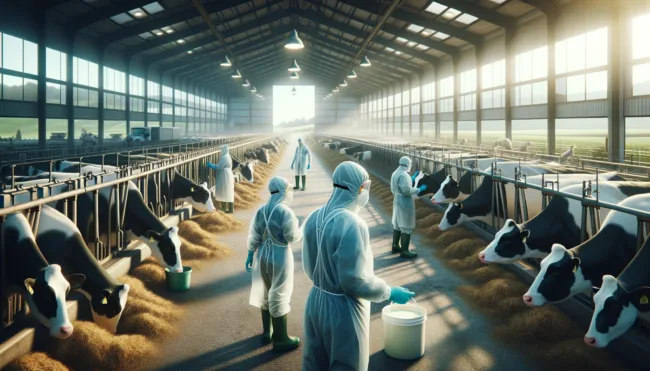Second human case of bird flu confirmed in Michigan amid ongoing surveillance
Health authorities in Michigan have confirmed a second case of bird flu, also known as avian flu, in a farmworker, raising concerns as this marks the third human infection in the United States this year. The Michigan Department of Health and Human Services (MDHHS) reported that the individual, a dairy farm worker, was exposed to the virus through infected livestock.
Overview of the Michigan Case
The affected individual was employed at a dairy farm distinct from the one involved in the first Michigan case, which surfaced on May 22. The farmworker exhibited respiratory symptoms following direct exposure to an infected cow and is currently recuperating after being administered antiviral medications.
MDHHS highlighted the lack of personal protective equipment (PPE) worn by the individual at the time of exposure. “With the first case in Michigan, eye symptoms occurred after a direct splash of infected milk to the eye,” explained Dr. Natasha Bagdasarian, MDHHS Chief Medical Executive. “With this case, respiratory symptoms occurred after direct exposure to an infected cow. Neither individual was wearing full personal protective equipment. This tells us that direct exposure to infected livestock poses a risk to humans, and that PPE is an important tool in preventing spread among individuals who work on dairy and poultry farms.”
National Context and Public Health Response
This case follows the initial U.S. case of the year, which was documented in Texas in April. Despite these instances, the Centers for Disease Control and Prevention (CDC) continues to assess the risk to the general public as low, citing no evidence of human-to-human transmission of the virus thus far.
The CDC, alongside the U.S. Department of Agriculture (USDA), has been actively monitoring the situation, especially after bird flu strains were found in several mammals across the country earlier this year. Instances have included striped skunks in Washington state, a mountain lion in Montana, and a raccoon in Kentucky. “There is no concern about the safety of the commercial milk supply or that this circumstance poses a risk to consumer health,” the USDA reassured in a statement.
Preventative Measures and Expert Recommendations
In light of these developments, MDHHS recommends that individuals working on poultry or dairy farms receive seasonal flu vaccinations. While these vaccines do not prevent bird flu infection, they can reduce the risk of co-infection with both avian and other flu viruses.
As part of a broader federal preparedness plan, the CDC announced last week that it is gearing up for a “possibility of increased risk to human health” from bird flu, emphasizing the importance of vigilance and preventive practices among those in close contact with potentially infected animals.
The recurrence of bird flu cases in humans, particularly among those in close contact with infected animals, underscores the need for stringent safety measures and continuous surveillance. The situation calls for heightened awareness and preparedness, especially among those working in at-risk environments such as dairy and poultry farms.
This developing story not only highlights the complexities of managing zoonotic diseases but also emphasizes the critical role of preventive health measures and quick response to potential outbreaks.
Discover more from Business-News-Today.com
Subscribe to get the latest posts sent to your email.


